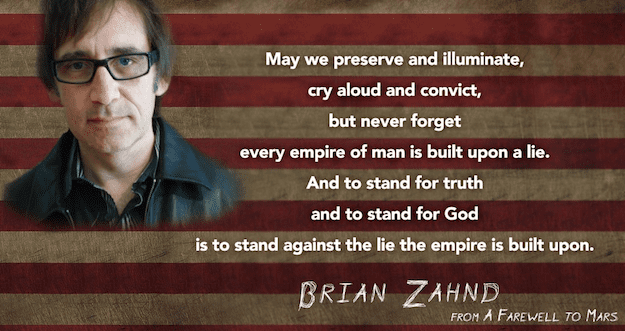What I mean by that is in every conflict I have I make a concerted effort to not respond with violence. What I mean by that is I try to uphold the dignity of the other especially when we are at odds. I understand violence as the most primitive form of dehumanization. When I act violently toward another I not only dehumanize my sense of self (or character) but I also dehumanize the other. This makes it possible to be violent toward the rest of creation as well. If I were to act cruelly toward my dog I dehumanize myself and have therefore acted violently. It’s not a perfect line of logic but it has accounted for more of the ethical questions in my life than some sort of just-violence calculus. It’s not a position I came to easily and it’s not one I sit comfortably with. Today I’m not comfortable.
Today I’m not comfortable with non-violent rhetoric of the particularly progressive Christian stripe. I’m not comfortable with the ideals of cultivating a “nonviolent imagination”. I’m not comfortable when I read statements by Hauerwas like this:
Such a love means that nonviolent resistance seeks not to defeat or humiliate the opponent, but to win a friend. The protests that may take the form of boycotts and other noncooperative modes of behavior are not ends in themselves, but rather attempts to awaken in the opponent a sense of shame and repentance. The end of nonviolent resistance is redemption and reconciliation with those who have been the oppressor. Love overwhelms hate, making possible the creation of a beloved community that would otherwise be impossible. Nonviolent resistance therefore is not directed against people but against forces of evil. [1]
Brian Zahnd iterates a similar sentiment in his most recent book A Farewell to Mars where he argues that the things that make for peace is, essentially, the golden rule which leads into this statement: “The road of ‘God is on our side, and he shall surely smite our enemies’ is a wide road. . .it’s also the road that leads to burned villages, bombed cities, and solemn processions of flag-draped coffins.”[2] The narrow road, for Zahnd, is nonviolence and it isn’t sitting well with me today. That’s not to say I disagree necessarily. I argue much of the same sentiments in an essay I wrote for my MTh program a couple of years ago. My discomfort isn’t the sort of quasi-spiritual sentiment of being “stretched” or “out of my comfort zone”. My discomfort is much more of an unnerving feeling that after so many years of being a “pacifist” this part of my worldview seems utterly inadequate in response to the unadulterated, unhindered violence we are witnessing on the world stage today. ISIS is the most glaring example on my mind right now but we could just as easily look at Gaza, the Ebola Outbreak, the violence in the cities of our own country and contemplate all the violence that goes untold, unshared on the social networks or otherwise unseen. It’s overwhelming.
Like the rest of the world I’ve been keeping up with the sheer terror and evil ISIS has wrought. They have crucified “rebels”. Not since before the fall of the Roman Empire has Mass not been said in Mosul and that is not even to mention the persecution the Yazidi’s have been encountering at every turn. President Obama informs us he has authorized US military re-engagement, airstrikes have commenced he says. “America is coming to help”, he says. America will add to the violence and more people will die. Is there such a thing as the right person being killed?
What’s the pacifist, nonviolent response here? How do we love our way through the army of ISIS to liberate those stranded on the mountain or to keep children from such depraved brutality? What is the pacifist response to such radical evil? Is there a point of no return that an enemy can cross where they are no longer capable of the transformative potential love possesses? Pope Francis has appealed to the international community to act against this unrelenting force – but what kind of action? Can there really be a viable non-violent alternative? It was easy for me to adopt the pacifist position in the classroom when debating hypothetical scenarios (the intruder in my home) or events historically removed from my lifetime (Hitler). What about now when just a few clicks away I can find pictures of children’s heads on spikes outside of the next town ISIS seems to have conquered? Now, it’s not so easy.
In fact it is so uncomfortable to reflect on the previous words about awakening our enemy’s sense of shame through non-violent resistance it actually makes me angry. I also see the futility in wielding violence in hopes of achieving a peace that isn’t just another form of oppression. Am I alone in that anger?
We should be uncomfortable. We should be angry. We should be overwhelmed. We should be all of these things and we should sit with these questions for a little while before jumping into debates about war. We should sit and listen before being so quick to wave the pacifist banner triumphantly as if this were the most obvious ethical position to take.
Next time I’ll attempt to work through some of these questions the best I can and make an argument for pacifism that makes the most sense out of the chaos from my point of view. For now, though, these are some of the toughest and oldest questions levied against a non-violent ethic which need to be weighed and measured. To go at it from the other direction, the question must be asked with all seriousness (quite unlike how the song goes):
War, what is it good for?
—
1. Stanley Hauerwas. War and the American Difference: Theological Reflections on Violence and National Identity (Baker Academic: Grand Rapids, MI, 2001), 90
2. Brian Zahnd. A Farewell to Mars. (David C Cook: Colorado Springs, CO, 2014), 146












